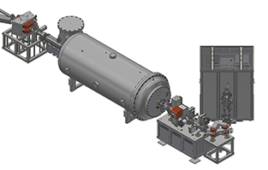A new ultra-sensitive technology which
can monitor leaks from underwater gas pipelines has been developed by
scientists at the University
of Southampton.
The research has shown that potentially
environmentally and financially disastrous gas leaks from pipelines, and
methane naturally leaking from the seabed, could in future be detected using
changes in acoustic signals.
Using a simple set of underwater
microphones to monitor these changes would provide a cost effective, unique
detection system which would be one hundred times more sensitive than current
monitors used by the oil and gas industry for remote detection with long deep
sea pipelines.
“This new technology could save gas
extraction and distribution companies millions in lost revenue. Severe leaks
can also be dangerous to nearby oil rigs, shipping and for shore-based gas
distribution facilities,” comments Professor Tim Leighton of the University’s Institute of Sound and Vibration Research who led the
research.
He adds: “The technology would allow us
remotely to monitor and potentially reduce the release into the atmosphere of
gases from the seabed. This applies both to gas extracted by the petrochemical
industries and to the methane which is naturally released from the seabed.”
Natural leaks of methane gas can be
damaging to the environment because it is a greenhouse pollutant.
The new acoustic technology, which is
in early development, could also be used in future to monitor the structural integrity
of carbon capture and storage facilities which are being developed globally.
These facilities will trap carbon emissions, which scientists believe may be
contributing to global warming. The UK government has just announced it
is investing £1 billion in their development.




